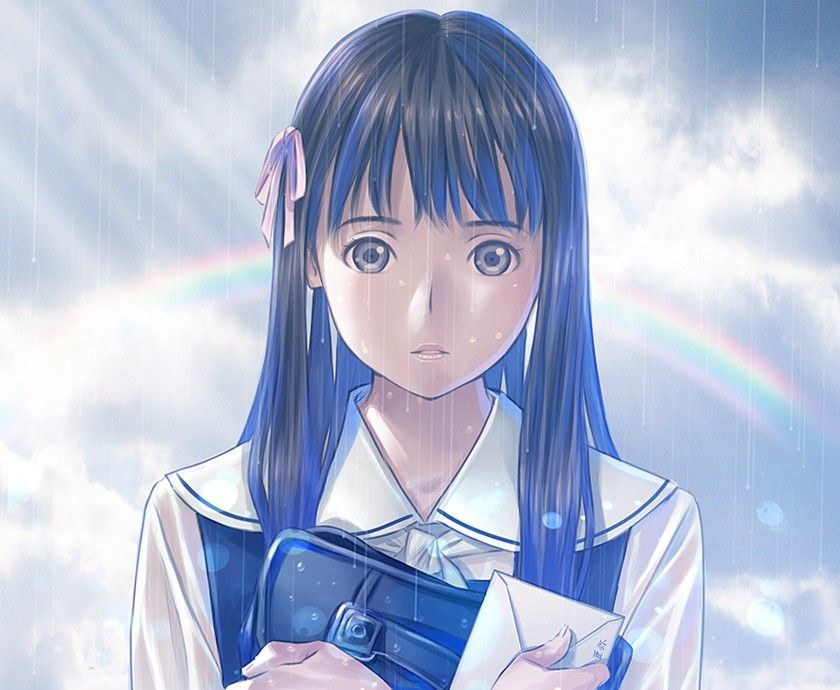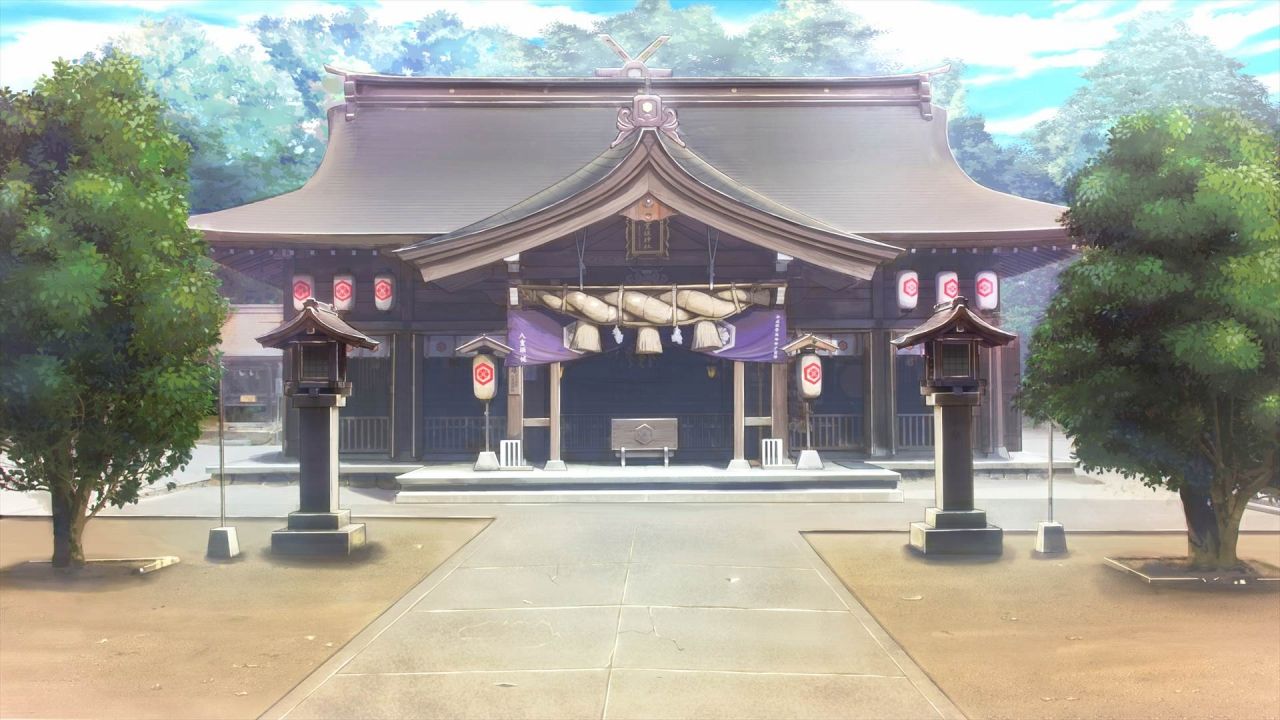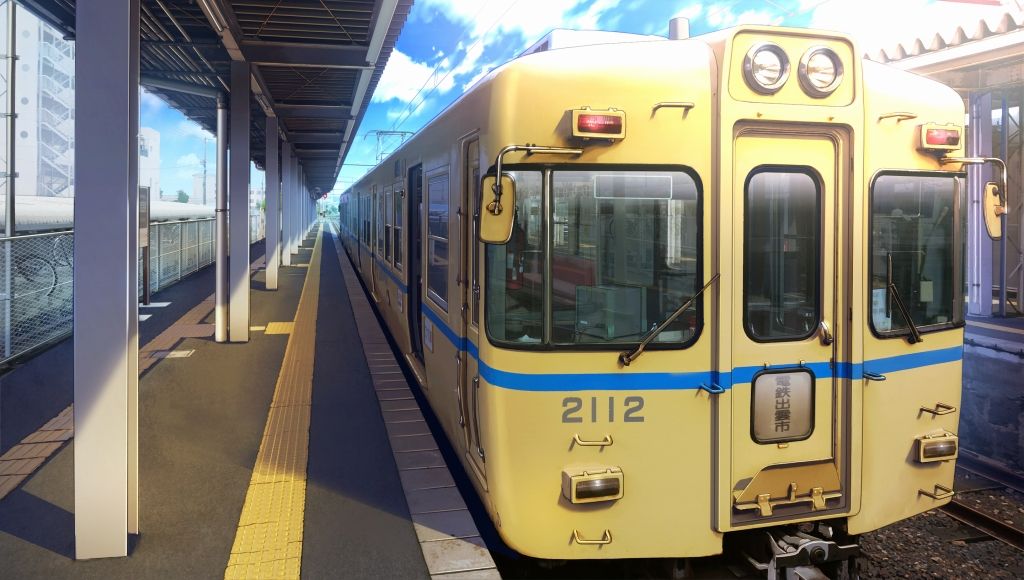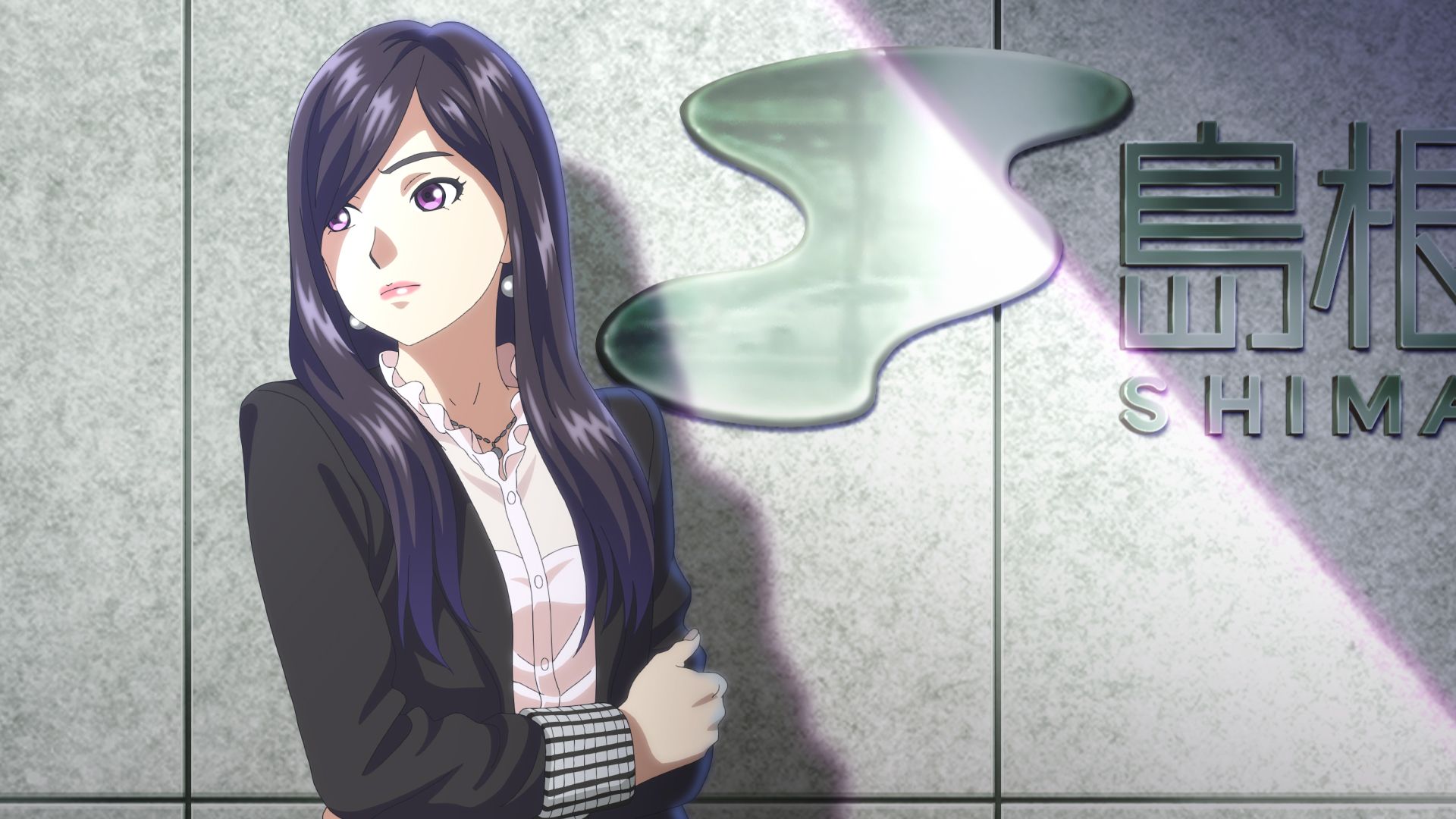Kadokawa Games' Root Letter (√Letter) is one of the most peculiar games coming out in the next few weeks. Set in Shimane Prefecture, a part of Japan that isn't all that well known even among the Japanese, it comes with a strong local flavor, promising to show us an aspect of the country that might surprise and charm many.
It also features art by Mino Taro, who is well known for the massively popular LovePlus dating sim series.
In order to get a better idea of what the game entails, I had a chat with Director Zin Hasegawa, who previously worked on the Fatal Frame series, asking him what goes into creating this kind of niche but quite interesting title.
Giuseppe: Root Letter is a title that many wouldn't see as a candidate for a release in the west. When I saw it the first time, Kadokawa Games already mentioned that it was slated for a worldwide release, but that still surprised me. When did you decide it would be localized? Was it something decided from the very beginning?
Zin Hasegawa: We thought from the beginning that this title would be released in the west, but we created it as a Japanese game without even try to specifically appeal to western gamers. We actually don't really know if western people will like it.
The game, besides being a visual novel, is set in Matsue, Shimane Prefecture, and its nature is really local and Japanese. It's actually a challenge for us, and we're wondering: "will the western audience understand this game that is so Japanese, will they appreciate Matsue and Shimane Prefecture?"
G: Some people seem to think that cultural differences are a liability, but personally I feel that they are an added value. It's like both playing a game and traveling to a different country at the same time. How are you thinking to market this game to the western audience? Maybe you're going to play on the fact that it lets you experience the local flavor of a less known part of Japan?
ZH: Obviously, this is not a casual game. It's not a mass market game, and we're not sure whether everyone will like it. Yet, we think that the people that like this kind of game will enjoy it very much. Those who like the genre will be able to explore a part of Japan that not many know even among the Japanese, and surely we thought that the way you can discover another side of Japan would make the game more appealing.
Having this realistic setting, which is not very well known even for the Japanese audience, it was a challenge even in Japan.
G: Why Shimane? Is there anything special about the place?
ZH: First of all, we wanted a place that wasn't the usual Tokyo, so being in the countryside was the first requisite. Secondly, we wanted a place where the mountains and the sea meet. There were three candidates for that, and Shimane is one of them.
We also wanted a place that has a deep history, and as you might know the history of Shimane is quite amazing. For instance there is Isumo-Taisha. Also, our president was born in Shimane.
G: This game is set mostly in the city of Matsue, right? How far can we actually go from the city? Can we experience the countryside as well?
ZH: You can visit both Matsue and Izumo.
G: Kadokawa Games seems not to be afraid to create smaller games for a very niche fanbase. Why do you use resources to make games this small isntead of focusing them on potential bigger hits? Don't get me wrong, I definitely enjoy this, but it seems difficult to justify from a business standpoint.
ZH: First of all, this isn't just a visual novel. It's more of an adventure game. Not many are doing games like this recently, so it's obviously a niche market, but we thought we'd make one.
[Editor's Note: In Japan the idea of adventure game is different from the west, where it's more associated with action-adventure. The Japanese concept of adventure game is more similar to heavily text-based adventure games of old, with a prominent example being the Ace Attorney series]
We also wanted to have a small project. We want to be dynamic and make it fast, but also this is the first of a series. It's kind of a "episode zero."
G: So it's going to be a franchise?
ZH: The idea is to have a franchise called "Kadokawa Mystery," which would be a series of adventures and this is the first one. Which is why we also have the idea of Kadokawa Mystery Actresses. The lead character Fumino Aya is voice acted by Noriko Hidaka, which is a quite famous voice actress in Japan. For instance she did Ranma 1/2
[Editor's note: Noriko Hidaka was the voice of tomboyish heroine Akane Tendo, but she has acted in about a gazillion roles in some of the most well known anime of my generation].
We want to use these three digital actresses dubbed by famous people, who would be recurring characters if there will actually be a sequel.
G: Let's hope so. Visual novels and adventure games are getting quite popular on Steam. There are many even smaller and niche example that get a Steam release, and at times I suddenly find there stuff that I haven't ever heard about. Are you thinking to release the game on Steam after the console release?
ZH: Obviously. Steam is a platform that we are watching carefully. With this game, we're thinking first of Sony's platforms, and we're going to launch on them with PQube. Then we'll see. If there is enough interest, we'll surely evaluate the PC platform.
G: You mentioned that this is possibly going to be a franchise. Are the possible follow-up games going to be actual sequels, or they're going to be completely separate stories?
ZH: The place would change, and they would be different stories. They could also be different genres.
G: Since this game is set in a place with a strongly "local" flavor like Shimane prefecture, are the next game going to follow the same route?
ZH: As we mentioned before, it has to be a place with a rich history, and a place that is not the center of Japan.
G: There certainly are many of those places in Japan. I guess that you have a lot of choice.
ZH: Do you like Japan?
G: "Like" might be putting it lightly. I love Japan. I'm guessing you're also looking at this game as one that those who love Japan and are interested in its culture might be interested in playing, right?
ZH: Certainly, people who love Japan are one of the targets, but we also want to target people that don't know Japan at all. We hope that maybe with this title they will find a way to discover things that they don't know, and that maybe they don't yet know they'll like.
G: One thing that is quite interesting about Root Letter, is that you have actually cast real people from Shimane prefecture, and then turned them into characters in the game. It must have been a lot of fun to do the casting and find candidates with interesting features. How did the idea come to be, and how did it go?
ZH: When we went to location scout for the game, we were shooting in real places. When we were asking about some of those places, inquiring if we could use them, we happened to ask the owners if they wanted to be in the game too. They enjoyed it very much. We have a lot of funny characters like Mr. Nakamura from Nakamura Bar, or a strange lady that drives a boat on Matsue river. It was a lot of fun, and they were really happy to be in it.
Even places that aren't so obvious, like Matsue's airport, station, the train, the cruise tours... Everything is there, and of course they didn't pay us anything for it. It was really out of passion, and we found passion in the people of Matsue and of the Shimane prefecture. They were so kind and so excited by the idea. We even have Shimanekko, the mascot of the prefecture, and there is a side-story in the game about him.
We even had people from Matsue that helped us write in local dialect.
G: That's gonna be fun for the ones doing the localization. Since it's in Shimane and there is Shimanekko, will we see the pink train as well?
ZH: You know a lot! It won't be included, because there was an exclusive about it for a period of time, so it won't be in the game.
[Editor's Note: the pink train is a popular cruise train to Izumo-taisha, featuring Shimanekko in its design]
G: I might just be a little bit of a train otaku.
ZH: (Laughs)
G: What are the expectations about this game? I can't exactly see it as something that will get massive sales. Will that be ok in terms of sequels?
ZH: Obviously we developed this game with a contained budget, so we know that with that budget we can have a certain amount of sales. Yet, we were hoping that even if it won't sell too much, it might be an interesting number that will make us think about developing a sequel.
G: Good, because I'd like more.
ZH: Really? So you like visual novels.
G: I do, but even more than visual novels themselves, I'm very interested in the concept of games with this kind of local flavor. Was it difficult to find a publisher for Root Letter in the west?
ZH: It wasn't difficult. If you look at marketing this kind of game, it certainly is difficult, but if you think about the companies that like and distribute this kind of game, like PQube for example, it's easier than it seems.
Root Letter will release for PS4 and PS Vita on November 1st in North America and October 29th in Europe, courtesy of the good folks at PQube.





